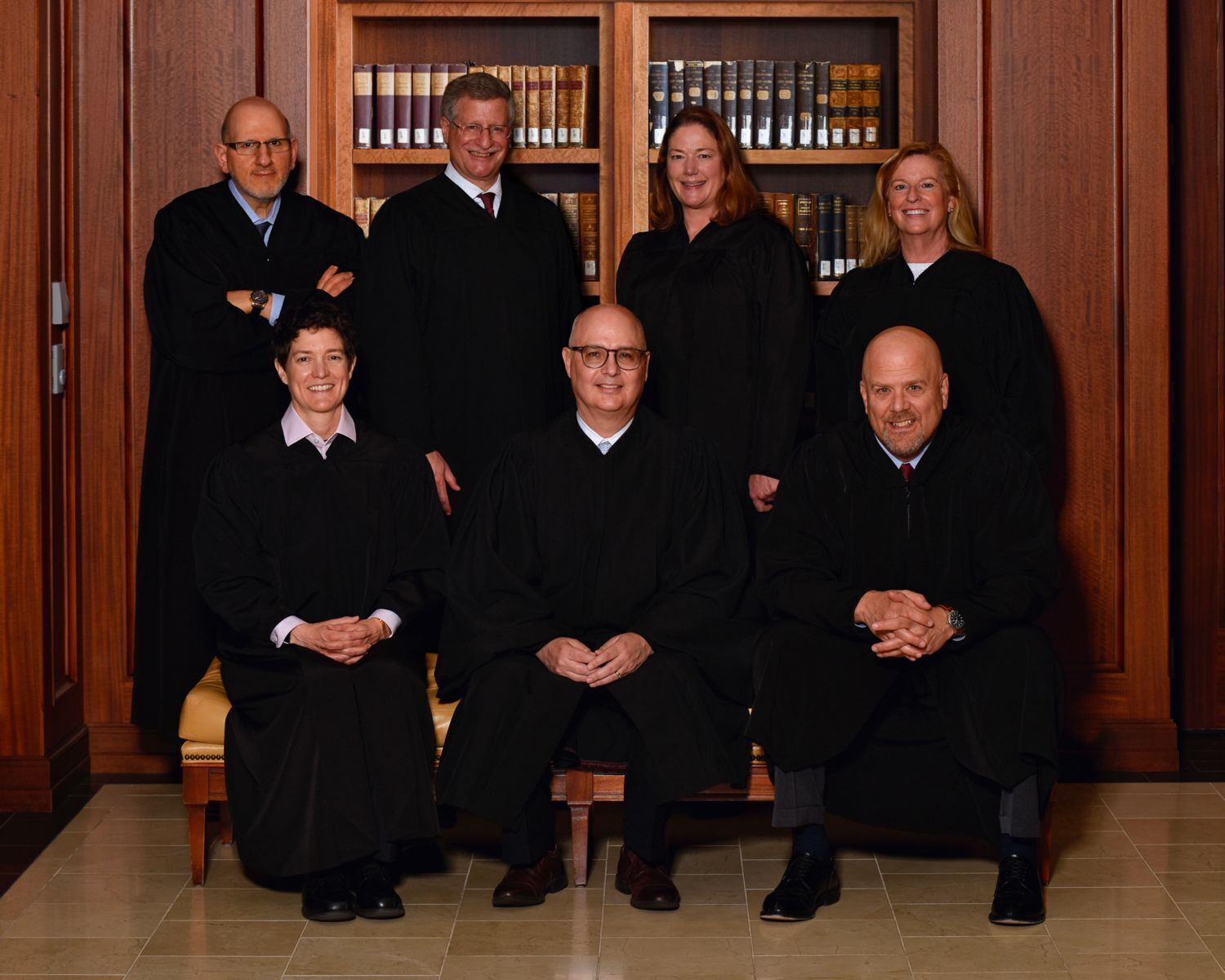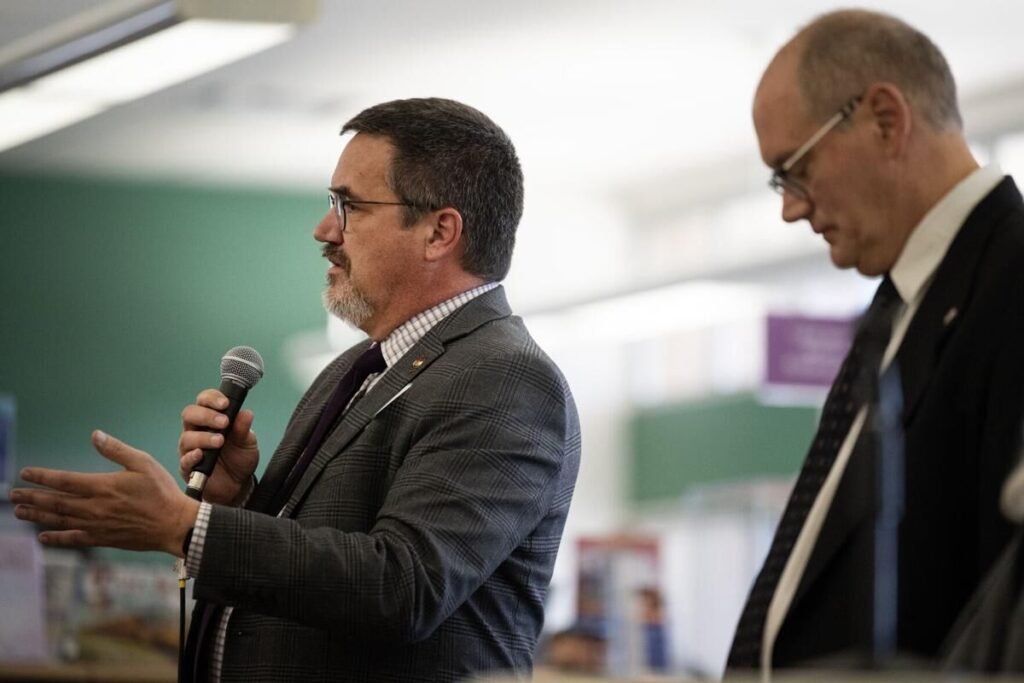State Supreme Court agrees to hear Fourth Amendment, urban renewal cases

The Colorado Supreme Court agreed this month to hear two appeals, one implicating the Fourth Amendment’s protection against warrantless searches and the other encompassing a key financing system for local redevelopment.
On Monday, the justices accepted the appeal of Adrienne Marie Stone, who a Jefferson County jury convicted of menacing and child abuse in 2019. Originally, Arvada police Sgt. Betsy Westbrook responded to Stone’s home after learning of a confrontation between Stone and her son involving a knife. When Westbrook arrived, Stone was not home, but her son agreed Westbrook could come inside.
Westbrook saw the knife Stone had used to threaten her son, and also saw a large amount of clutter in the house. She took pictures with her cell phone, then decided to go to her police vehicle to retrieve a camera. As she stepped outside, Stone arrived home.
Westbrook re-entered the house after seeing Stone was upset at her presence. A school resource officer also arrived and went inside the home. Several more government employees joined the scene, with a caseworker, code enforcement officer and police photographer all entering Stone’s house to examine the condition of the home. They decided the multiple children inside had to be removed.
The trial judge agreed Westbrook’s initial entrance to the home was lawful because Stone’s son had invited her. But the parade of law enforcement entrances after Stone had arrived violated her Fourth Amendment right against unreasonable searches. The judge ordered all evidence collected from those unlawful entrances to be excluded from trial, including the police photographs.
Stone made multiple arguments on appeal, including the claim that Westbrook’s photos of the knife and observations of the home from her initial entry should have also been prohibited. Stone contended her son, as a minor, could not consent to Westbrook’s entry. Even if he could, she added, the consent did not encompass Westbrook’s re-entry after she stepped out to get her camera.
Last year, a three-judge panel of the Court of Appeals concluded Stone’s son had the authority, as an occupant of the home, to consent to Westbrook’s entry. Westbrook was not required to wait for Stone to come home in order to gain her consent, and since Stone was not initially present to object, the sergeant’s entrance was lawful.
As for Westbrook’s re-entry, the appellate panel agreed police officers are not entitled to come back to a home after a long interlude and still have authority to go inside. But in this case, the re-entry was so close to the original entrance, it was lawful.
“Because (Stone’s son) did not revoke his consent or object to Westbrook’s re-entry, Westbrook was not required to ask … for consent to re-enter,” wrote Judge Lino S. Lipinsky de Orlov.
The Supreme Court will now review whether law enforcement officers who obtain consent to enter a home for one reason are allowed to re-enter the home for another purpose.
The case is Stone v. People.
On Oct. 4, the Supreme Court agreed to review a divided ruling from the Court of Appeals that the state’s counties warn will deprive them of millions of dollars in property tax revenue.
Colorado’s Urban Renewal Law authorizes entities to facilitate redevelopment projects in areas deemed blighted. Funding for the projects comes from tax increment financing (TIF), a system in which the blighted property has a base value, and any increase in property value that results in higher property tax revenue – known as the “increment” – pays for the redevelopment project.
The Aurora Urban Renewal Authority and multiple other entities filed suit against Arapahoe County Assessor PK Kaiser and the state’s property tax administrator, JoAnn Groff. The plaintiffs disputed how Kaiser applied the guidance in the state administrator’s Reference Library to calculate the base and increment values.
The Reference Library deems changes that are “property specific” to only affect the increment value for a TIF area, including the physical characteristics of the property or modifications to its use. However, both the base and increment values are altered by “indirect benefits relating from market perceptions” that redevelopment areas are more desirable.
Although a trial judge sided with the defendants, the Court of Appeals reversed that ruling in January.
Judge Michael H. Berger, writing for himself and Chief Judge Gilbert M. Román, found the “indirect benefits” methodology inconsistent with the Urban Renewal Law. Berger reasoned that market perceptions of a property’s desirability are attributable to the redevelopment plan.
“But for the TIF plan, there would be no market perception that a property in the TIF plan was more or less desirable or valuable,” he wrote. “This is not what the legislature intended.”
Judge David H. Yun disagreed the calculation of indirect benefits ran contrary to the law. The state property tax administrator, in his view, has the discretion to specify how base and increment values are treated. Yun warned the majority’s interpretation crossed into dictating public policy.
“I cannot say that this method of valuing taxable property – allocating value changes directly caused by the urban renewal project to the increment while allocating value changes caused by general market conditions proportionately to the base and increment,” he wrote, “is not authorized by the URL.”
Kaiser and Groff appealed to the Supreme Court. Supporting them was Colorado Counties, Inc., which represents 62 of Colorado’s 64 counties. CCI argued the Court of Appeals’ decision would cause millions of dollars of property tax revenue to be siphoned away through lower base values.
The Supreme Court will review whether the appellate panel’s interpretation was correct, or if the administrator had the authority to issue her methodology for calculating indirect benefits to TIF areas.
The case is Kaiser et al. v. Aurora Urban Renewal Authority et al.














